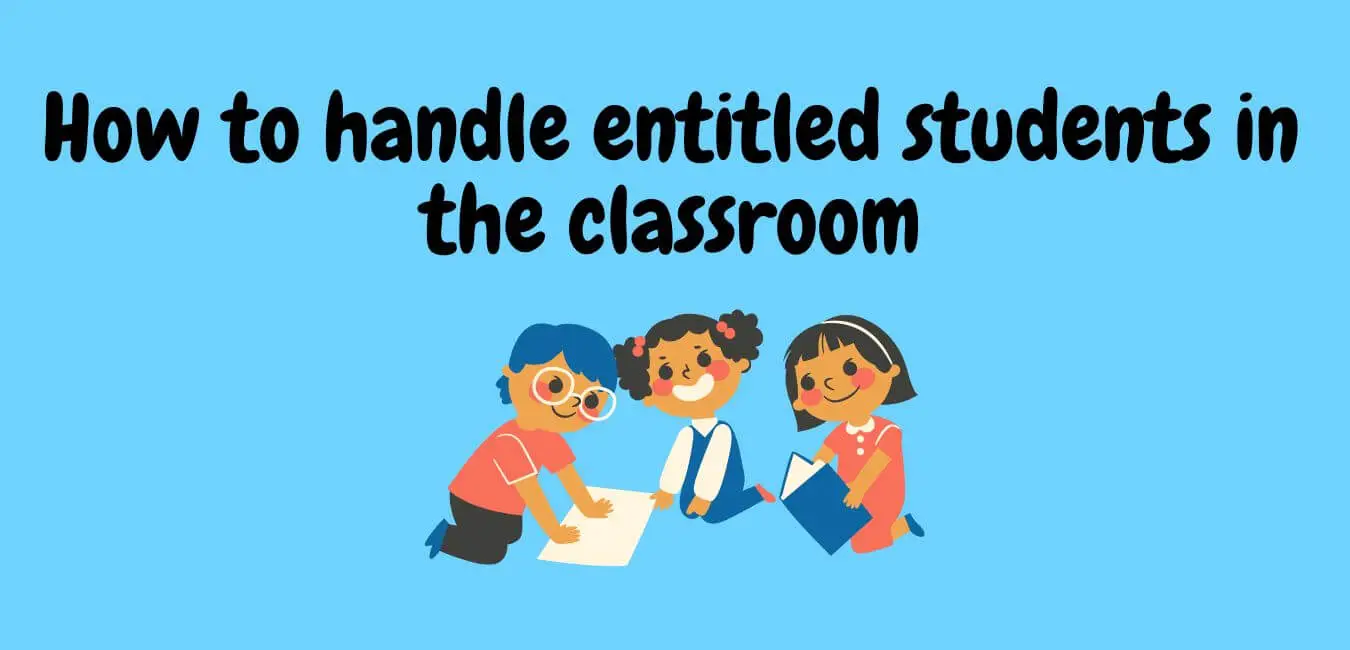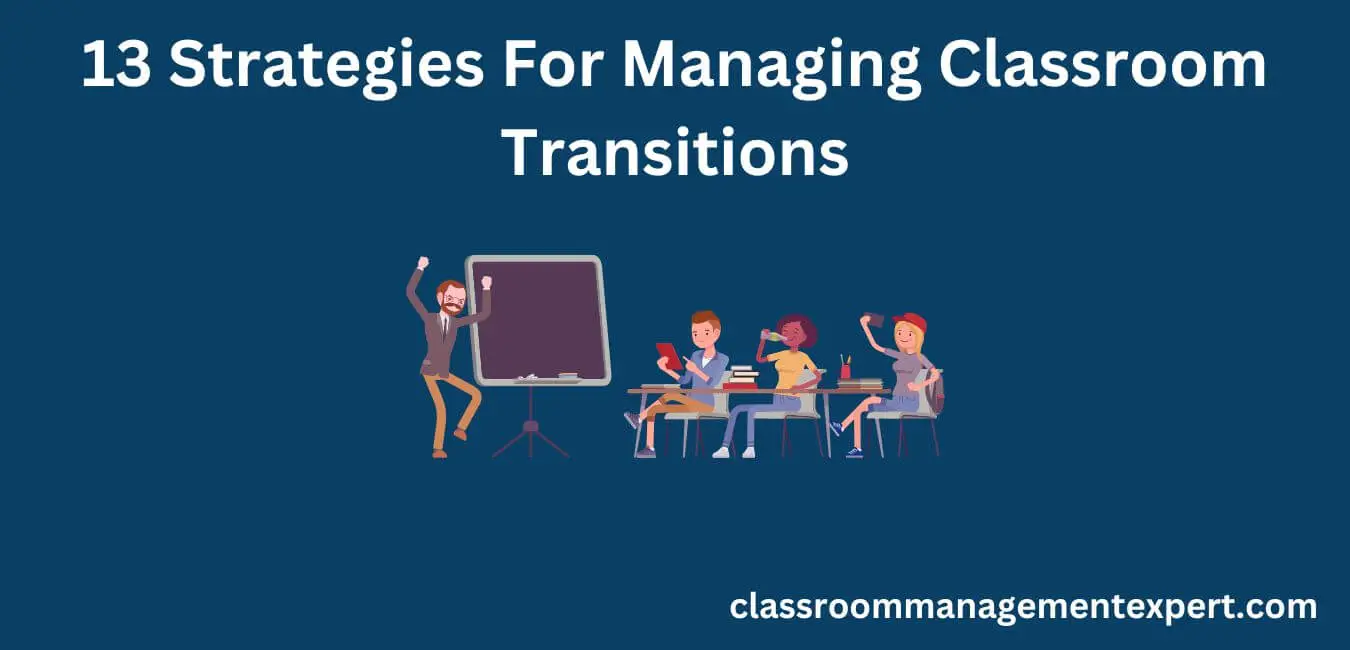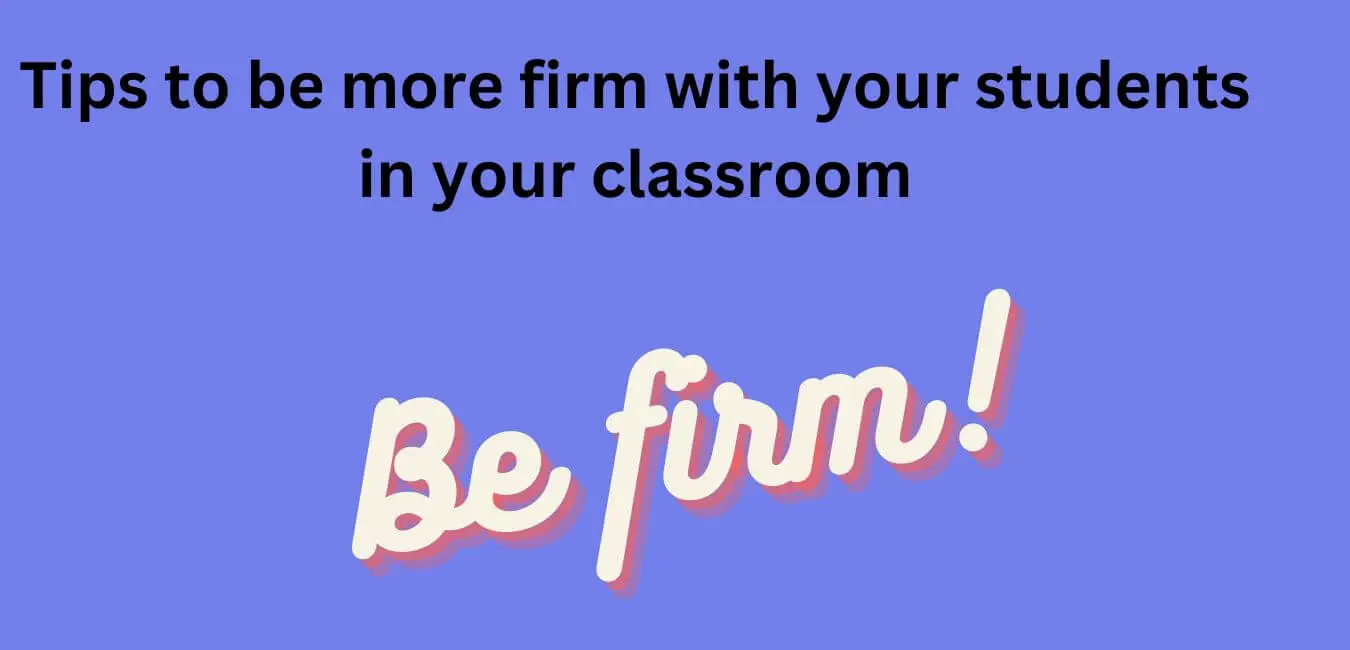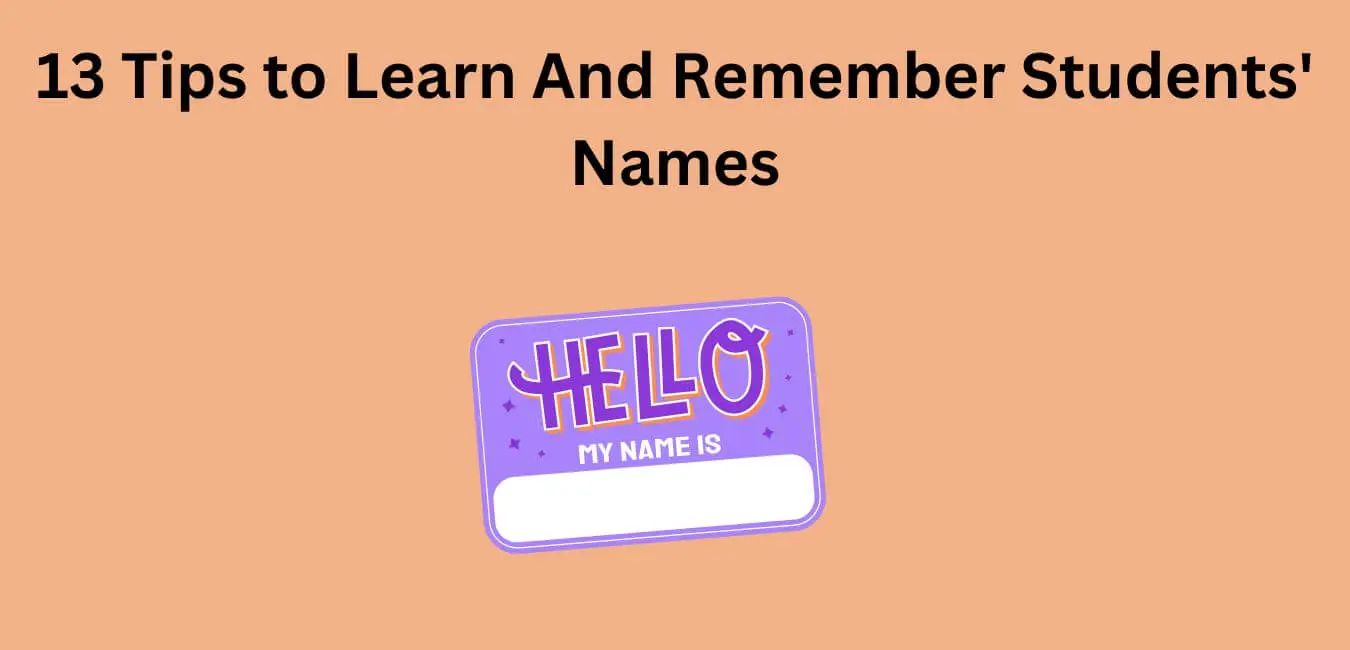Most teachers have, at one time or another, had a self-entitled student in their classroom. These are the students who insist on getting their way, who feel that the rules don’t apply to them, and who view their professors as adversaries.
So how do you deal with these students? First, it’s important to understand what motivates them. In many cases, self-entitled behavior is a symptom of underlying insecurity. These students may be used to getting preferential treatment from their parents or teachers, and they expect the same from you.
The best way to deal with self-entitled students is to set clear boundaries and expectations from the beginning of the semester. Let them know that you won’t tolerate any type of disruptive behavior in your classroom.
In this post, I will help you understand self-entitlement among students and provide ways to help you deal with that behavior.
Why is it important to address student entitlement?
Entitlement is a sense of entitlement one feels to something they believe they are owed. A student who acts entitled in the classroom often thinks they are above the rules or don’t have to do the work because they are “special.”
There are a few reasons why it’s important to address entitlement issues in students.
For one, it’s important to nip entitlement in the bud early on. If students feel entitled in school, it’s likely that this sense of entitlement will carry over into their adult lives. Addressing entitlement issues early on can help students learn how to handle themselves and their expectations in a healthy way.
Secondly, addressing entitlement can create a more positive and productive learning environment for everyone involved. When students feel entitled, they often act out or refuse to do work. This can disrupt the learning process for both them and their classmates.
Third, addressing entitlement can help students become more confident in themselves. If you take the time to address their sense of entitlement and make them aware that they are not entitled to certain things, your students will be able to become more secure in their own abilities.
Fourth, addressing entitlement can help students become more open to advice and criticism. When students feel like they are entitled to things, they often struggle to listen to constructive criticism or even advice from others.
Fifth, addressing entitlement can help students become more open to trying new things. If they feel like they are entitled to certain things, they might be less willing to try new activities or take risks.
Check out more of our articles here.
Solutions: How can teachers handle self-entitled students in the classroom?
1. Set and provide firm but fair expectations of behavior.
As a teacher, I always set firm but fair expectations of behavior in order to manage the entitled students in my classroom.
By doing so, I am able to provide structure and stability for all students, while still maintaining a positive learning environment.
Some may argue that setting firm expectations is unfair to entitled students, but I believe that it is necessary in order to ensure that all students are treated fairly and equally.
If I were to allow entitled students to act out or misbehave without consequence, it would send the message that their behavior is acceptable.
This could lead to further issues down the road and would cause problems for other students in the classroom.
Overall, by setting firm but fair expectations of behavior, I am able to maintain a positive learning environment for all students in my classroom, entitled or not.
2. Consistent rules and consequences.
There are a few key reasons why I set consistent rules and consequences for behavior in my classroom. First, it creates a sense of fairness and order for all students.
Secondly, it allows me to be proactive in my discipline instead of reactive. And third, it lets the entitled students know that their behavior will not be tolerated.
When rules and consequences are consistent, students know what to expect and there is little room for argument or debate.
This can be helpful in managing entitled students because they are less likely to try and take advantage of any loopholes.
Furthermore, by being proactive with my discipline, I can nip problem behavior in the bud before it gets out of hand.
Lastly, entitlement issues often stem from a sense of entitlement itself. Check out how I create rules in my classroom here.
3. Promote a sense of community.
In today’s society, there is a growing sense of entitlement among young people. As a teacher, I see this entitlement manifest in my classroom in the form of students who think they are owed something simply because they exist.
These entitled students often act out or refuse to do work, expecting that the world will just give them what they want.
It is my job to manage these entitled students and help them learn that the world does not owe them anything.
In order to do this, I always work to promote a sense of community in my classroom. Find out how I do that here.
By creating an environment where everyone is working together for the common good, I can help students see that we are all in this together and that we all have to pitch in if we want things to run smoothly.
4. Encourage empathy.
In my classroom, I always encourage empathy among students to help me manage the entitled students. By promoting empathy, I hope to instill in my students a sense of understanding and respect for others. This, in turn, will help them to better manage their own emotions and behaviors.
As a teacher, I have found that entitled students often lack empathy. They are quick to judge others and are often insensitive to the feelings of others.
By encouraging empathy among my students, I am able to help them see things from another perspective. This helps them to be more understanding and tolerant of others.
I believe that it is important for all students to learn how to empathize with others. It is a skill that will serve them well throughout their lives. By teaching my students to be empathetic, I am helping them to become better people.
You may be interested in finding out how I teach my students to be empathetic. This is why I have this post to walk you through it.
5. Help them develop a growth mindset.
In every classroom, there are a few students who always seem entitled. They think they deserve special treatment and often have a negative attitude.
While it can be tempting to just ignore these students, doing so can actually make the situation worse.
Instead, try to help them develop a growth mindset. This means teaching them that intelligence is not fixed and that they can improve with effort.
When students believe they can get better, they’re more likely to put in the work needed to succeed.
Helping entitled students develop a growth mindset isn’t easy, but it’s worth the effort. Not only will it make your job as a teacher easier, but it’ll also benefit the students in the long run.
6. Modeling behavior you want to see.
When it comes to managing entitled students in the classroom, I always model the behavior I want to see.
By doing so, I am setting the tone for how I expect my students to behave. Entitled students often need a firm hand and clear boundaries in order to stay on track.
By modeling the behavior I want to see, I am helping my students understand what is expected of them.
In addition, modeling the desired behavior also helps me manage my own emotions and reactions.
When I model the behavior I want to see, it allows me to remain calm and collected when dealing with entitled students.
7. Power struggles are not worth your time and energy.
In today’s society, it seems that entitlement has become a way of life for some students. They feel that they are owed something, whether it be a good grade, special treatment, or extra time to complete an assignment.
As a teacher, it can be easy to fall into the trap of trying to accommodate these students in order to avoid a power struggle. However, doing so is not always in your best interest.
Power struggles are not worth your time and energy when managing entitled students because:
1) These students are often not willing to compromise or meet you halfway.
2) You will never be able to please everyone, so don’t try.
3) Trying to accommodate entitled students takes away from the time and energy you could be spending on other students who are more willing to work with you.
8. Help self-entitled students see the value in following the rules and being respectful in the classroom.
It’s no secret that self-entitled students can be a handful in the classroom. But why do I always go out of my way to help them see the value in following the rules and being respectful?
There are a few reasons, actually. First and foremost, I believe that every student has the potential to be great.
It’s my job as a teacher to reach them where they’re at and help them grow. And secondly, I know that if I can get these students to buy into the rules and respect their classmates, it will create a positive learning environment for everyone involved.
So how do I go about helping self-entitled students see the value in following the rules? For starters, I make it clear that there are consequences for breaking them.
Also, I’m a firm believer in showing my students how following the rules can help them succeed.
It’s up to me to show them that if they want to grow and get better, they need to follow the rules.
Finally, I try to be patient with these kids. I know it can be frustrating to constantly have to redirect them, but I’ve learned that if I get upset, they’ll just feed off my negative energy.
9. Use “I” statements but avoid sounding like a dictator.
When it comes to dealing with self-entitled students in the classroom, I always use “I” statements. This allows me to avoid sounding like a dictator.
However, there are still some things that I need to be careful about. For example, I need to make sure that I don’t use too many “I” statements in a row.
This can make it sound like I’m lecturing the student. Instead, I try to break up my comments with questions or other kinds of statements.
Additionally, I make sure to avoid using “you” statements. These can come across as confrontational and may only serve to further upset the student.
10. Encourage the entitled students to engage in pro-social behavior.
Entitled students can be a handful in the classroom. They’re used to getting their way and often have trouble when they don’t. As a teacher, you can encourage entitled students to engage in pro-social behavior.
Here are a few ways to do that:
1. Explain why it’s important. Entitled students may not realize how their behavior is impacting others in the class. Help them understand why it’s important to be respectful and considerate of others.
2. Model the behavior yourself. Entitled students need to see that it’s possible to behave differently. Show them that you’re capable of being respectful and considerate, even when things don’t go your way.
3. Encourage positive peer interactions. Help entitled students see the value in interacting positively with their classmates.
11. Give choices to entitled students whenever possible.
Giving choices to students who feel entitled is a way to effectively manage them while still facilitating their learning.
When possible, allow these students to choose between different options in order to help them feel as though they are in control.
This will help them stay engaged in the lesson and prevent disruptive behavior. However, be sure to set clear boundaries and expectations so that the students know what is expected of them.
By giving choices and maintaining firm boundaries, you can effectively manage self-entitled students in the classroom.
12. Avoid giving entitled students too much attention.
When it comes to managing entitled students in the classroom, I always avoid giving them too much attention.
This is because they tend to use this attention to their advantage, and it can often make the situation worse.
Instead, I focus on giving attention to the students who are behaving properly. This sends a clear message to the entitled students that their behavior is not acceptable and that they need to change it if they want to be treated like everyone else.
13. Be assertive, not aggressive, when managing entitled students in the classroom.
It’s no secret that some students can be, well, entitled. They think the world revolves around them and their needs should always come first.
But as a teacher, you need to find a way to deal with these types of students without coming off as aggressive yourself. Here are a few tips on how to do just that.
First, try to see things from their perspective. It’s likely that these students have been coddled or given everything they’ve ever wanted without having to work for it. So when you’re dealing with them, try to be understanding and patient.
Second, don’t hesitate to set boundaries. These students need to know that you’re in charge and that they need to respect your authority. So be assertive when you need to be and don’t let them take advantage of you.
14. Find their strengths and use them to your advantage when handling entitled students.
When it comes to entitled students in the classroom, it’s important to find their strengths and use them to your advantage. By doing this, you’ll be able to better manage these types of students and help them succeed in the classroom.
Here are a few tips on how to find and use entitled students’ strengths:
1. Talk to them individually: When you take the time to talk to an entitled student one-on-one, you’ll be able to get a better understanding of their strengths. Use this time to ask questions about their interests and what they’re good at.
2. Observe how they interact with others: Another way to gauge an entitled student’s strengths is by observing how they interact with their peers. Do they tend to take charge or follow along? Are they good at working in groups or prefer working alone?
15. Use group work to your benefit and that of the entitled students when managing their behavior.
Most educators have likely experienced self-entitled students in the classroom at some point.
These are the students who always think they know better, insist on having their way, and generally make things difficult for both the teacher and their classmates.
While it can be tempting to simply give in to these students and let them have their way, this is usually not the best solution.
Instead, try using group work to your benefit and that of the entitled students when managing their behavior.
Self-entitled students often do not work well in groups because they want to be in control.
However, if you can pair them up with a student who is willing to take a more submissive role, they can actually be quite successful.
This allows them to feel like they are in charge while still getting the opportunity to learn from their peers.
Let your entitled students know you’re the boss, but be open to hearing their suggestions.
As a teacher, it’s important to be in control of your classroom. But that doesn’t mean you can’t be open to hearing your students’ suggestions.
16. Be open to hearing their suggestions.
Just because you’re the authority figure doesn’t mean you can’t listen to your students’ suggestions. If they have a good idea, consider implementing it.
4. Hold entitled students accountable for their actions.
It is important to hold entitled students accountable for their actions in order to ensure that they learn from their mistakes and do not continue to behave in a way that is detrimental to themselves or others.
By providing consequences for their actions, we can help them to learn how to make better choices and become more responsible members of the community.
Conclusion
In conclusion, the key to dealing with self-entitled students is to be open, but not too open. Don’t be afraid to show your authority when necessary. And make sure you hold them accountable for their actions so that they learn that there are always consequences for their actions.



















